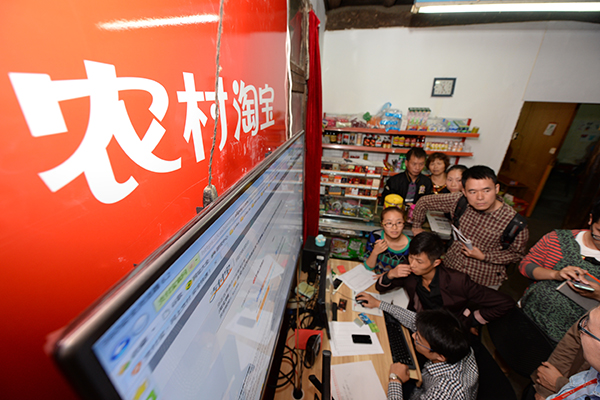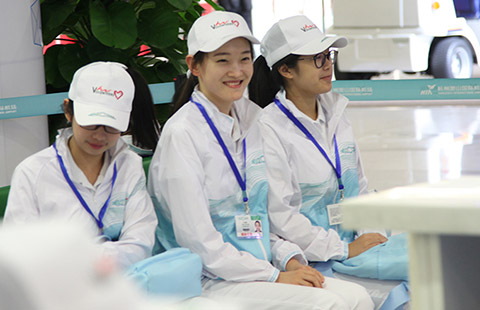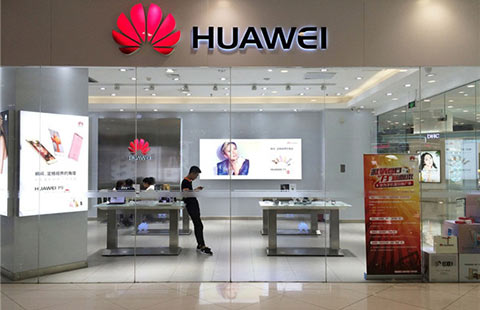Hangzhou a model of innovation
By Li Xiaokun (China Daily) Updated: 2016-09-01 08:13
 |
|
An online shop based in a village in Tonglu county, Hangzhou, made its first deal in October 2014. The capital city of Zhejiang province is a leader in China in e-commerce, boasting the biggest number of websites and the most vibrant online payment. [Photo/Xinhua] |
Leaders Summit city in vanguard in internet finance and e-commerce
Why Hangzhou? The question might have entered the minds of many people since President Xi Jinping announced at last year's G20 in Turkey that Hangzhou will host the 2016 Leaders Summit.
"The Hangzhou model, with its emphasis on tertiary industry, especially fast-growing industries including internet financing, e-commerce and big data, stands for a Chinese path of development," Yan Jiuyuan, a researcher at Trigger Trend Research Center, a Guangzhou-based think tank, wrote in an analysis widely spread on the internet.
"The embedding and growth of the internet helped the city to realize its achievement, turning it from a second-tier city famous for tourism to a central city with great impact."
At present, more than one-third of the China's e-commerce websites are based in Hangzhou, pioneered by the industry's world leader, Alibaba.
Despite downward pressure on the domestic economy, Hangzhou's GDP increased by 10.8 percent in the first half of this year, ranking first among 26 major Chinese cities, according to the Hangzhou government. The information economy accounted for 23.8 percent of total GDP growth.
Hangzhou has also become the world's most convenient city for mobile payment. More than 95 percent of local stores, 98 percent of taxis and 50 percent of restaurants accept mobile payment, while a large number of vegetable market vendors can also be paid by phone.
On top of this, Hangzhou, Beijing and Shenzhen have been recognized as the three centers of China's business-starting tide. And Hangzhou also ranked first in terms of its latest growth rate.
Xi said in Turkey that the theme of the 2016 summit will be "Toward an Innovative, Invigorated, Interconnected and Inclusive World Economy".
"Innovation will be highlighted at the summit, as the whole planet is seeking a new growth model," said Huang Wei, chief of global governance studies with the Chinese Academy of Social Sciences.
Shen Yinchu, an academic at the Chinese Academy of Engineering, said Hangzhou is a hot spot of technology development and personnel training.
"Its great contribution to the country and the whole world has been widely recognized."
Chen Fengying, a researcher on the global economy at the Chinese Academy of Social Sciences, said Hangzhou is the best example of a city linking China's past, present and future.
"We all know about the city's ancient history. And at present, Hangzhou is a place where many industries have made a successful transformation," she said.
She cited Wahaha, the country's biggest beverage enterprise, which has come to the forefront of intelligent manufacturing and plans to enter industries including biological engineering, bacterial strain, environmental protection and energy saving motors.
Chen also cites the example of is China's biggest auto parts maker, the Wanxiang Group, which now eyes clean energy in the global market.
"There are many reasons for the central government to pick Hangzhou. But I think the key reason is that Hangzhou can present the future of China," Chen said.
- Alibaba's Jack Ma makes his own G20 proposal
- What's being said about upcoming G20 summit?
- Alipay forays into Europe via payment deal with Ingenico
- Australian products selling like hotcakes on Alibaba
- New Alibaba book chronicles rise of China's Internet, private sector and its largest e-commerce company

















